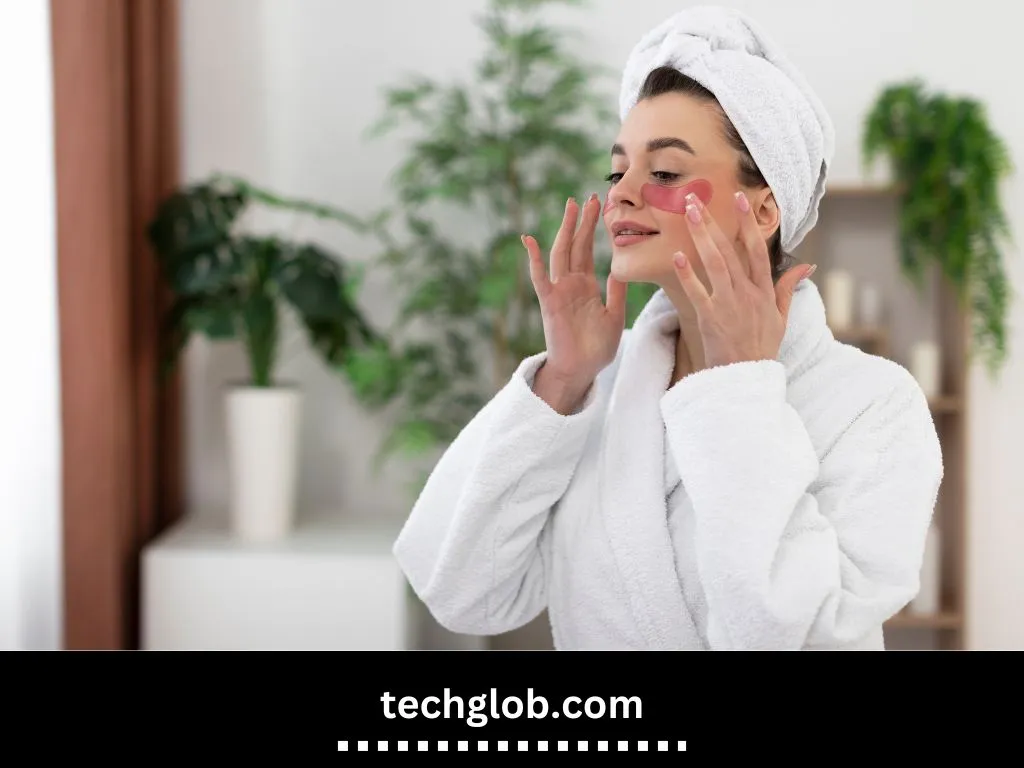Skin care in Hindi wellhealthorganic has become a hot topic for everyone aiming to achieve glowing and healthy skin. Whether you’re battling dryness, acne, or aging signs, this guide will walk you through every essential detail about taking care of your skin naturally, holistically, and scientifically. Let’s dive into the ultimate roadmap to skin health.
Fundamentals of Skin Care
Understanding Skin Types
Every person has a unique skin type—oily, dry, combination, or sensitive. Knowing your skin type is the first step to picking the right products and routines. Observe how your skin reacts throughout the day to determine its type.
How Skin Functions: Science Behind Healthy Skin
Skin acts as a barrier protecting you from environmental damage. It renews itself every 28 days, but factors like age, pollution, and poor nutrition can slow this process. Understanding this helps you choose treatments that aid repair and hydration.
Daily Skin Care Routines
Morning Rituals for a Fresh Start
Start your day with a gentle cleanser, a hydrating toner, and a moisturizer suited to your skin type. Never skip sunscreen—it’s non-negotiable for skin protection.
Evening Relaxation Routine
Evenings are all about repairing damage. Remove makeup thoroughly, cleanse deeply, and apply a nourishing serum followed by a night cream.
Natural Skin Care Tips
Benefits of Natural Ingredients
Ingredients like aloe vera soothe inflammation, rosehip oil brightens skin, and tea tree oil fights acne. Incorporating these into your routine can bring visible results without harsh chemicals.
DIY Skin Care Recipes
- Aloe Vera & Honey Mask: Mix 2 tablespoons of aloe vera gel with 1 tablespoon of honey for deep hydration.
- Coffee Scrub: Blend coffee grounds with coconut oil to exfoliate dead skin cells naturally.
Targeted Skin Care for All Types
Oily Skin: Tips and Recommended Products
Focus on lightweight, oil-free moisturizers and clay masks to manage excess sebum. Ingredients like salicylic acid help control breakouts.
Dry Skin: Remedies and Hydration Hacks
For dry skin, hydration is key. Use creams rich in hyaluronic acid and drink plenty of water to nourish your skin from within.
Sensitive Skin: Gentle and Safe Practices
Opt for fragrance-free and hypoallergenic products to avoid irritation. Patch-test everything before application.
Seasonal Skin Care
Summer Care: Protection from Heat and Sun
Use a broad-spectrum sunscreen and lightweight moisturizers. Avoid heavy makeup and stay hydrated.
Winter Care: Fighting Dryness and Cracks
Apply heavier creams and avoid hot showers, which strip natural oils. Use lip balms and hand creams for extra care.
Monsoon Tips: Avoiding Humidity-Induced Issues
Keep your skin clean to prevent fungal infections. Use a toner to control excess oil and keep breakouts at bay.
Advanced Skin Care Tips
Anti-Aging Solutions
Incorporate retinol-based products to boost collagen production. Don’t forget sunscreen to prevent premature aging.
Acne Treatment
For acne, combine benzoyl peroxide or salicylic acid with regular exfoliation. Avoid picking at breakouts to prevent scarring.
Addressing Dark Circles Naturally
Apply a chilled green tea bag or cucumber slices to reduce puffiness and dark circles.
Holistic and Sustainable Approaches
The Power of Ayurveda in Skincare
Ayurvedic remedies like turmeric masks and neem cleansers are great for maintaining balance and treating specific issues naturally.
Balancing Nutrition and Skincare
Your diet directly affects your skin. Foods rich in omega-3, antioxidants, and vitamins are crucial for a glowing complexion.
Eco-Conscious Practices
Opt for brands that use sustainable packaging and ethical sourcing of ingredients to make your skincare routine earth-friendly.
Professional Skin Care

Expert Advice from Dermatologists
Consult a dermatologist for stubborn skin issues like cystic acne or hyperpigmentation. They can recommend effective treatments tailored to your skin.
Professional Treatments
Consider facials, chemical peels, or microdermabrasion for advanced care. These treatments can provide deeper rejuvenation.
Science-Driven Skincare
Look for products backed by clinical research. Hyaluronic acid, niacinamide, and peptides are popular ingredients proven to work.
Skincare Product Selection
Choosing the Right Products for Your Skin Type
Always match products to your skin type. Read labels and avoid harsh chemicals.
Natural vs. Synthetic Skincare
Natural products are gentle but may not provide quick results. Synthetic ones are effective but can irritate sensitive skin. Choose wisely.
Evaluating Ingredients and Labels
Avoid sulfates, parabens, and artificial fragrances. Look for dermatologically tested products.
Common Myths and FAQs
Debunking Popular Myths About Skin Care
- Myth: Oily skin doesn’t need moisturizer.
Truth: Oil and hydration are different; oily skin still needs hydration. - Myth: Expensive products work better.
Truth: Effectiveness depends on ingredients, not the price.
How to Look Younger Naturally?
You don’t need expensive products to maintain a youthful look. Start by drinking plenty of water and eating antioxidant-rich foods like fruits, nuts, and green vegetables. A proper sleep schedule and daily moisturizing can work wonders. Include sunscreen every morning, as UV rays are a top reason for premature aging. Gentle face massages with natural oils like coconut or almond oil also help improve blood circulation and skin elasticity.
Which Serum is Best for Glass Skin?
The secret to glass skin is hydration and brightness. Serums with hyaluronic acid and niacinamide are excellent for this. Look for lightweight, water-based serums that soak into your skin without leaving it greasy. Vitamin C serums are also great for fading dark spots and giving your skin a radiant glow. Make sure to use the serum after cleansing and toning but before moisturizing.
What Are the Benefits of Using Natural Skin Care Products?
Natural products are free from harsh chemicals, making them safe for long-term use. They reduce the risk of allergies and work gently on the skin, keeping it hydrated and glowing. Ingredients like aloe vera, turmeric, and neem help fight acne and other skin issues naturally. Plus, they’re eco-friendly, so it’s a win-win for your skin and the planet!
Skin Shine Cream: What It Is and How to Use It
Skin shine creams are designed to brighten and even out your skin tone. Most of these creams include light exfoliants or melanin-reducing agents that help fade dark spots and pigmentation. Use them sparingly—apply a pea-sized amount to clean skin at night and follow up with sunscreen in the morning to protect from sun damage.
Product-Specific Skin Care
What Is Byoma Skincare?
Byoma is a skincare brand focused on repairing the skin barrier. It uses ceramides, cholesterol, and fatty acids to keep your skin healthy and moisturized. Their lightweight formulas are perfect for sensitive or dry skin, and they blend well into daily routines.
How Do You Use Numbuzin Skin Care?
Numbuzin offers number-based skincare solutions tailored for different needs. Start with their cleansing oil, follow it with a toner, and pick a serum that suits your skin type (like their hydrating serum for dry skin or pore-tightening serum for oily skin). Their approach is about layering lightweight products for maximum absorption.
Best Skin Care Cream Recommendations
- Cetaphil Moisturizing Cream: Gentle and perfect for sensitive skin.
- Neutrogena Hydro Boost Gel: Lightweight and hydrating.
- Himalaya Herbals Nourishing Cream: Natural and budget-friendly.
- Biotique Bio Coconut Whitening Cream: For pigmentation and glow.
Skin Care Topics: Choosing the Right Product for Your Needs
Always consider your skin type first. For dry skin, opt for products with hydrating ingredients like glycerin. Oily skin needs lightweight, non-comedogenic products to avoid clogging pores. Combination skin works best with balanced formulas, while sensitive skin benefits from fragrance-free products.
Gender-Specific Routines
Skin Care Routine for Men: Tailored Tips
Men’s skin tends to be oilier and thicker, so cleansing twice a day is essential. Follow with a lightweight moisturizer and sunscreen. Shaving can irritate the skin, so always use an aftershave balm or gel to calm it. Exfoliate weekly to prevent ingrown hairs.
Is Skin Care Different for Men and Women?
Yes, men’s skin has more collagen and is often oilier due to testosterone levels. Women’s skin, on the other hand, is more prone to hormonal changes, so routines may include hormone-balancing ingredients. However, the basic principles—cleansing, moisturizing, and protecting—apply to everyone.
Holistic Skin Care and Health
How to Maintain Healthy Skin Through Diet and Lifestyle
Your diet plays a major role in skin health. Include foods rich in vitamins A, C, and E, along with omega-3 fatty acids. Exercise regularly to boost blood circulation, and avoid sugary and fried foods that can trigger breakouts. Sleep well and stay hydrated—these two factors alone can transform your skin over time.
How Does Stress Affect Your Skin?
Stress triggers the release of cortisol, which can lead to breakouts, dullness, and even premature wrinkles. Combat stress with mindfulness practices like yoga, meditation, or simply taking a break from your screen. A regular skincare routine can also act as a calming ritual to relax your mind and skin.
FAQs
Q: What’s the best routine for glowing skin?
A: Cleanse, exfoliate twice a week, use serum, moisturize, and apply sunscreen daily.
Q: Are organic products effective for all skin types?
A: Yes, but always patch-test first to ensure compatibility.
Q: How to find sustainable and eco-friendly skincare options?
A: Look for certifications like “Cruelty-Free” or “Eco-Cert.”
Lifestyle and Wellness Integration
Impact of Stress and Sleep on Skin Health
Stress hormones can cause breakouts. Prioritize 7-8 hours of sleep daily for skin repair.
Importance of Hydration and Nutritional Supplements
Drinking 8-10 glasses of water and consuming supplements like Vitamin E can improve skin texture.
Conclusion
Achieving healthier skin is a mix of understanding your skin, following daily care routines, and choosing the right products. By integrating natural remedies, professional advice, and eco-conscious practices, you can embark on a rewarding skincare journey.
